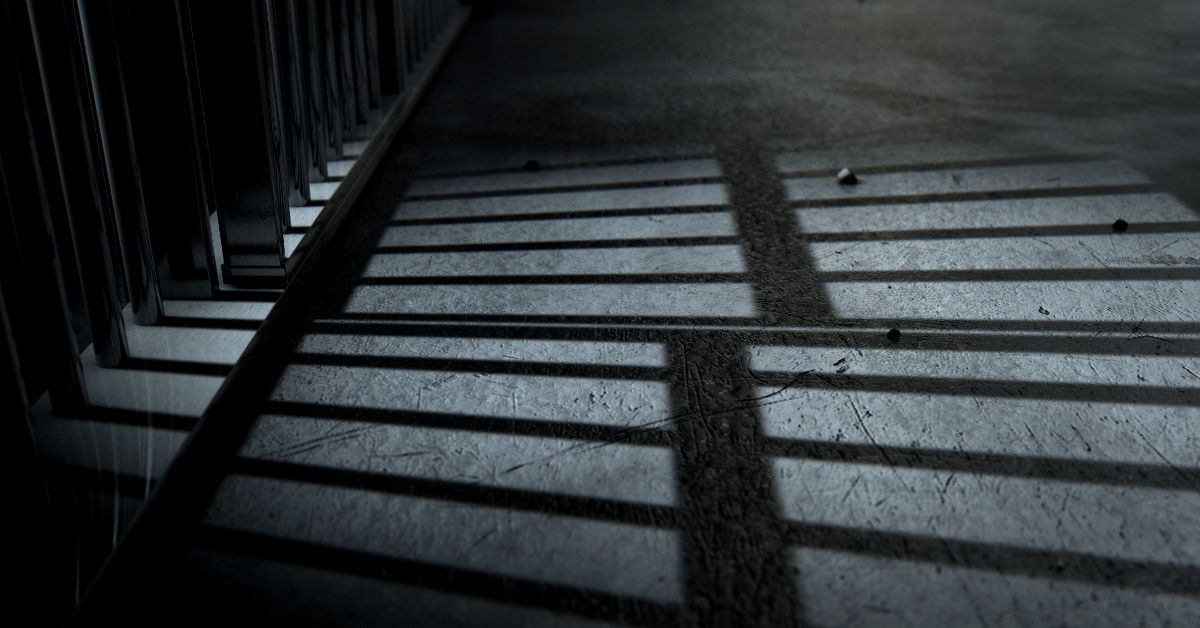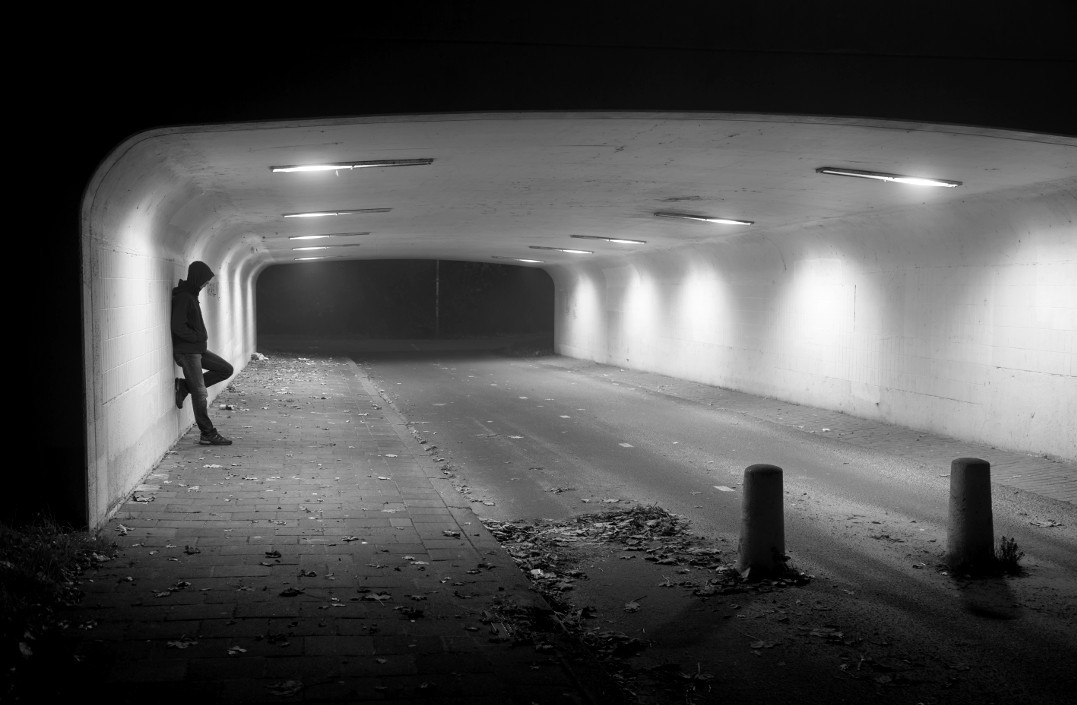Convict

The man looked up one last time, the life draining from his body, and beheld his killer. His final thought before the darkness closed in was not of revenge or of anger, but of how his daughter would grow up without a father and how, in the absence of her already deceased mother, she would spend the remainder of her life as an orphan.
Katie, he thought as if he had the power to call her with his mind. Then consciousness tapered, and the man, defeated, plunged head-first into the eternal void.
* * *
“Katie!” the convict cried, recoiling backward, and if not for the guards who held him by his arms, he would have smacked right into a broad stone wall. The abrupt change in perspective jarred him, and for a while the man just hung there, muscles suddenly limp, staring at the flickering torches on the high marble ceiling.
“Samuel, aged thirty-five, father of one, murdered this twenty-first of May, 2020.”
That voice. The convict had heard it before. But where?
He heard typing, followed by another voice, equally familiar.
“Let the record show that Gerald Miller has completed his third iteration and will be allowed a five-minute rest before the execution of his sentence continues.”
Memories of another man’s life flashed before the convict’s eyes. The guards helped him to his feet, and then, when they were satisfied he could stand, they let him go.
“Where am I?”
Before the convict stood a dark ebony bench seven feet high, occupied by an elderly man in a white powdered wig. He gazed down, stared at the convict through a pair of gold-rimmed spectacles, and announced, “You stand before the court today convicted of murder.”
Murder?
And then, just like that, the convict remembered. Gerald. His name was Gerald, and he most certainly was not dead. He’d been found by the police, standing over the man’s body with a knife in his hand. He could still remember slitting the man’s throat, could still remember how the man had looked up at him as he bled out onto the cold, wet asphalt.
It had been raining. Gerald had been hiding in the alley behind a dumpster, searching for an easy mark, and when the man walked by, umbrella in hand, Gerald had leaped from the shadows to demand his wallet or his life.
“No,” Gerald whispered. “No, I couldn’t have done that.”
He was a lot of things—a thief, a conman, a low-life—but certainly not a murderer.
But I did do it. I remember. Oh, God.
“I didn’t mean to kill him.”
“Mr. Miller,” said the judge, leaning over a stack of legal documents, “I’m afraid you misunderstand your position. You are no longer on trial. You have already been found guilty and stand before the court today to satisfy your sentence.”
No, this couldn’t be happening. Gerald had intended to let the man go. All he’d wanted was his money, and then Gerald would have sent him on his way. Streetlife was tough, and he was guilty of many crimes, but he’d never thought murder could be one of them.
Then the man had done something unexpected. He’d gazed upon Gerald not with anger or contempt, as so many of his other victims had, but with genuine pity and concern. The compassion that flickered in the man’s frightened eyes had reminded him of all the qualities his abusive father had lacked in abundance. The look had triggered a terrible rage, a blinding, white-hot jealousy, and before he knew what he was doing, he was stabbing the man with his knife, first in the side, then in the chest, then finally in the neck.
Now, tears filled Gerald’s eyes and he fell to his knees before the judge in supplication. “Please,” he whispered, “don’t make me do it again.”
To have to relive the horror of what he’d done, over and over again, to have to play the part of his victim, to feel the knife enter his body, to feel the despair that came with knowing that the man’s daughter would grow up without either of her parents, it was too much, and it would surely drive him mad.
The judge peered down at him, and not without compassion, said, “I’m sorry, Mr. Miller, but I do not have that power.”
Gerald collapsed then in a frenzy of tears and snot. The guards rushed to his side and, picking him up, escorted him back to the other end of the room where he would once more experience the final agonizing moments of the man’s life.
“The court is aware of your upbringing,” the judge said, “as well as the circumstances leading to your abhorrent actions. The court believes you capable of redemption, which is why your sentence is not permanent.”
Gerald looked up then, wiping his nose with his sleeve. “You mean I won’t have to do this forever?”
“No,” said the judge.
“Then for how long?”
“As long as it takes for you to understand the severity of your crime, and for the evil in your heart to be expunged. At such a time as the court sees fit, your condition will be assessed, and when it’s determined that you’ve been reformed, you will receive a second chance to lead a proper life.”
A flash of hope seized Gerald, only to be replaced by abject terror when the judge glanced down at his watch and announced, “Your rest time is over. Guards, take him into position.”
“No,” Gerald cried, “No!”
Gerald struggled for freedom, but the guards maintained an iron grip. The judge lifted his right arm, trembling with age, and with a flaccid flick of the wrist, fired a searing mote of energy in Gerald’s direction.
“Let the record show,” he said, just as that incredible power slammed into Gerald’s chest, “that Gerald Miller has begun his fourth iteration…”
Light burst behind his eyes like the flash of a dying star. Gerald detached from his body once more, and then—
* * *
The man looked up one last time, the life draining from his body, and beheld his killer.
Enter your email address and click "Submit" to subscribe and receive The Sign.
